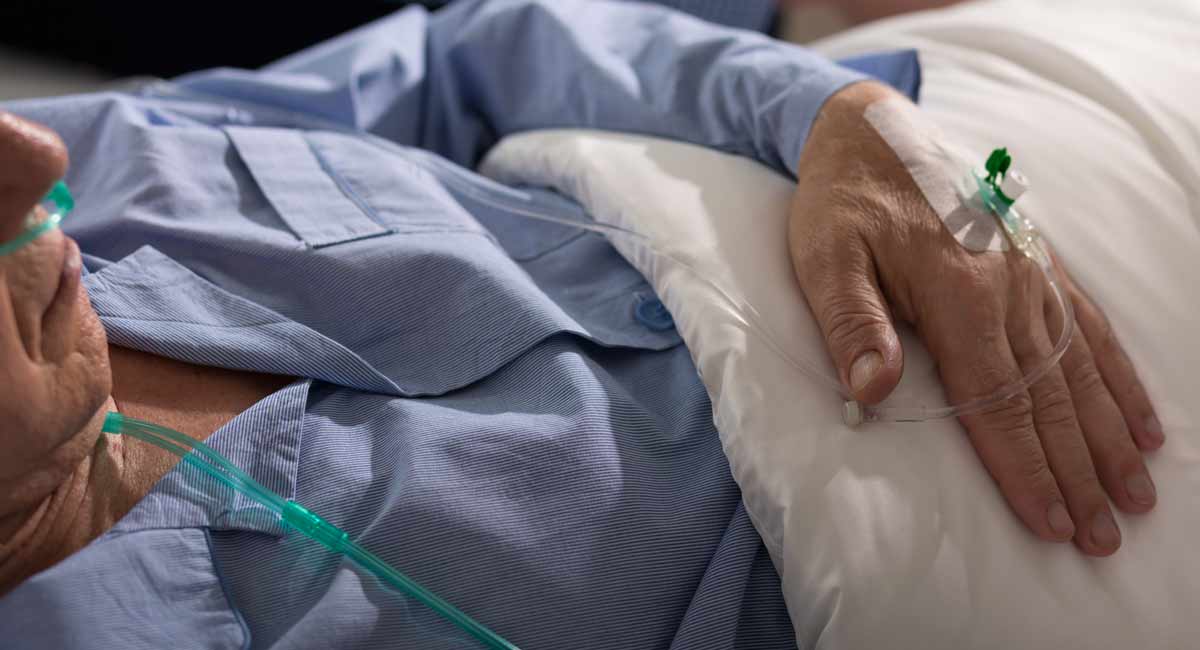As more countries and states consider legalizing euthanasia and assisted suicide, people are warning that legalizing the killing of some patients harms individuals and societies. Presenting suicide as “compassionate” and “death with dignity,” international lobby groups have been pushing for legalizing assisted suicide for decades. Many pro-life advocates have consistently warned about the dangers of assisted suicide to vulnerable populations, and some prominent advocates of assisted suicide have woken up to these dangers and are now speaking out.
One such person is Dutch ethicist Theo Boer, a professor at the Protestant Theological University at Groningen. Boer was supportive of euthanasia legislation that passed in the Netherlands in 2001, and from 2005 to 2014 he served on one of the five regional review boards tasked with determining if euthanasia cases were carried out in accordance with the supposed safeguards in the law. Now that euthanasia has been legal in the Netherlands for almost 20 years, Boer says that it was a “naïve mistake,” and he is warning other nations not to follow.
In October, Boer traveled to New Zealand to discourage the passage of legislation allowing euthanasia for people with a terminal illness who may have less than six months to live. In his interviews and writing, Boer offers at least three realizations that moved him to recognize the dangers and inhumanity of legalizing euthanasia.
- The suicide contagion effect– Assisted suicide advocates often claim that legalizing suicide in cases of terminal illness reduces the overall suicide rate by giving desperate patients legal means of ending their lives. Decades of legal assisted suicide do not bare this out. As the Euthanasia Prevention Coalition and other groups have reported, a single suicide encourages other suicides, and assisted suicide is no exception. Although initially the number of deaths by euthanasia and assisted suicide in the Netherlands were static following legalization, each year since 2008 has seen around a 15% increase.
The growing evidence for a suicide contagion effect can also be seen in regional variance of assisted suicide rates. Boer points out to New Zealand news site Noted that while assisted suicide accounts for about 5% of all deaths in the Netherlands, in certain regions 15% of deaths are the result of assisted suicide. It would seem that in some areas of the country, more patients are aware of assisted suicide or encouraged to pursue it.
Once euthanasia becomes an option for some patients, killing becomes the “default” way to die. Sadly, Boer says, many patients no longer see any form of death besides suicide as “dignified.” He told Noted, “There is a societal move to equate dignified dying and orchestrated dying. They think that the only dignified death is one that you have caused yourself or that your doctor has caused. That concerns me because killing a human being is, and should be, an exception.”
READ: Assisted suicide laws a ‘direct assault’ on dignity of persons with disabilities, says council
- The expansive interpretation of euthanasia laws- While New Zealand is considering only allowing assisted suicide in cases of terminal illness, there are no examples of countries that have maintained such safeguards in the practice of assisted suicide. Assisted suicide groups are now demanding the legal killing of people with disabilities, mental illness, or people who simply no longer want to live. In Belgium, euthanasia is even legal for children.
While New Zealand politicians may claim their legislation is impermeable to such expansion, the reality is that assisted suicide legislation is purposely crafted with loopholes that allow for the gradual expansion of killing to include more people, including people who are depressed or unable to afford life-saving treatment.
Boer told the Guardian earlier this year, “The process of bringing in euthanasia legislation began with a desire to deal with the most heartbreaking cases – really terrible forms of death. But there have been important changes in the way the law is applied. We have put in motion something that we have now discovered has more consequences than we ever imagined.”
- Requiring doctors to kill their patients- Euthanasia legislation requires doctors, who have committed their professional lives to healing and caring for their patients, to kill. This aspect of assisted suicide is not often discussed, but Boer says, “We shouldn’t pretend that killing a human being whose natural life is not ended is normal. That is certainly not the view of Dutch doctors – they continue to stress that it is emotionally very burdensome to do euthanasia.”
The cases in recent months of doctors and institutions being compelled to participate in assisted suicide is an indication that where assisted suicide is legal, doctors’ conscience rights are in jeopardy.
While advocates continue to present assisted suicide as a “compassionate” response to human suffering, the reality remains that assisted suicide does nothing to address and treat existential or physical suffering. Assisted suicide kills the person who is suffering. Boer’s observations of legal killing reveal the ugly reality behind the façade of “choice” and “compassion.” Patients deserve truly compassionate care, and doctors should not be required or encouraged to kill.
“Like” Live Action News on Facebook for more pro-life news and commentary!







